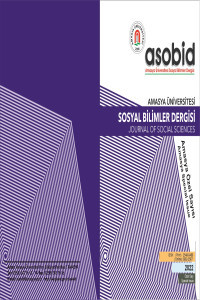HÜSN Ü AŞK’IN ARKEOLOJİSİ- I
Edebiyat eserinin yapı incelemesi, yani poetika, edebiyatçının en klasik yöntemidir. 19. yüzyılda modern filoloji ile hermenötik (yorumbilim) yöntemleri gelişip poetikanın yerini aldı ama bunlar yine poetikaya dayanır. Nitekim 20. yüzyılın başında poetika, “dilsel döndürme” diye geniş bir akım meydana geldiğinde yapısalcılıkla yeni bir önem kazandı. Bu yöneliş ile de “yapısalcılık sonrası” yöntemi ile postmodernizm anlayışı edebiyatçının donanımına hâkim oldu. Bunlarla beraber metnin arkeolojisi diye yeni bir yorum şekli, filolojinin yanına yerleşti. Filoloji bir eserin metinsel kaynaklarını arar; etkileyeni etkilenenden ayırıp bir sebep-sonuç çizgisi ile tarih içindeki yerini tespit eder. Arkeoloji demekle bundan daha kaba bir kazma işini kastediyoruz. Biz de bu çalışmada, Hüsn ü Aşk’taki manevi yolculuğun yorumuna nasıl arkeolojik bir boyut kazandırabiliriz sorusuna Platon’un Türkçeye Şölen olarak çevrilen Sempozyum’u ile Şeyh Galibin Hüsn ü Aşk’ını karşılaştırarak bir cevap aramaya çalıştık.
Anahtar Kelimeler:
Şeyh Galib, Hüsn ü Aşk, Platon, Sempozyum, metin arkeolojisi
ARCHEOLOGY OF BEAUTY AND LOVE- I
Poetics is the classic method of examining a literary work by focusing on its structure. Modern philology and hermeneutics developed alternatives in the nineteenth century taking poetics as a base. In the early 20th, poetics took on a new life through the "linguistic turn," which focused on the structures of "objects" created by language. With later poststructural and postmodernist approaches the archeology of texts gained a place beside philogy as an interpretive method. Philology looks at the textual sources of a work; it determines its place in history by tracing a cause and effect chain of influence. But it is always possible that there may be an older influencing text, or that influence may have traveled by other than textual means. Textual archeology explores these extra-textual avenues. Here I consider the place of Plato's Symposium in the archeology of the spiritual journey as we find it in Shaykh Galip's Beauty and Love.
Keywords:
Shaykh Galip, Beauty and Love, Plato, Symposium, textual archeology,
___
- Gutas, Dimitri (1988). “Plato’s Symposium in the Arabic Tradition”. Oriens, vol. 31 (1988), pp. 30-60.
- Holbrook, Victoria Rowe (1985). “Galib's Beauty and Love: The Ultimate Romance.” Princeton University doctoral dissertation.
- Holbrook, Victoria Rowe (1994). The Unreadable Shores of Love: Turkish Modernity and Mystic Romance. Austin: University of Texas Press.
- Holbrook, Victoria Rowe (2005a). Beauty and Loveby Şeyh Galip. New York: Modern Language Association Texts and Translations Series.
- Holbrook, Victoria Rowe (2005b). Şeyh Galip Hüsn ü Aşk. New York: Modern Language Association Texts and Translations Series.
- Kaçar, Mücahit (2016). Şairlerin Işıltısı: Ali Revnakî'nin Revnaku'ş-Şuarâsı –Mollâ Câmî'nin Poetikası-. İstanbul: Büyüyenay.
- Köksal, M. Fatih (2003). Yenipazarlı Vâlî -Hüsn ü Dil Mesnevisi (İnceleme-Tenkitli Metin-Dizin). İstanbul: Kitabevi.
- Lumbard, Joseph (2016). Ahmad al-Ghazali, Remembrance, and the Metaphysics of Love. Albany: State University of New York.
- Murata, Kazuyo (2017). Beauty in Sufism. Albany: State University of New York 2017.
- Platon, trans. Alexander Nehamas & Paul Woodruff. Symposium. Indianapolis: Hackett Publishing 1989.
- ISSN: 2548-0480
- Yayın Aralığı: Yılda 2 Sayı
- Başlangıç: 2016
- Yayıncı: Amasya Üniversitesi
Sayıdaki Diğer Makaleler
DİYARBAKIRLI AHMEDÎ’NİN KISSA-İ EYYÛB PEYGAMBER MESNEVİSİNDE ŞEYTANIN HİKÂYE KİŞİLERİYLE İLİŞKİSİ
OYUN KURAMI BAĞLAMINDA ROBERTO BENİGNİ’NİN HAYAT GÜZELDİR ADLI FİLMİNİN İNCELENMESİ
MUSTAFA İSÂMEDDÎN EFENDİ’NİN ŞERHLERİ VE ŞERH USULÜ
KADI BURHANEDDİN’İN DAMADI MEZİD BEY
ESNEK SAVAŞLAR: YENİ BİR KAVRAMSALLAŞTIRMAYA DOĞRU
